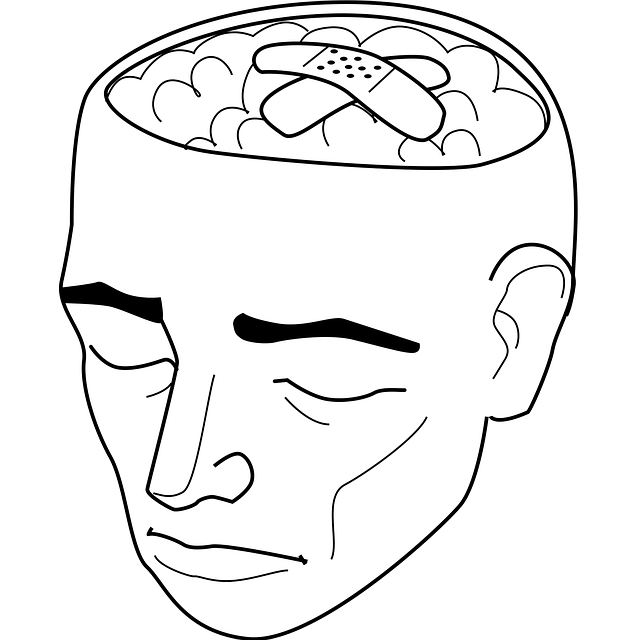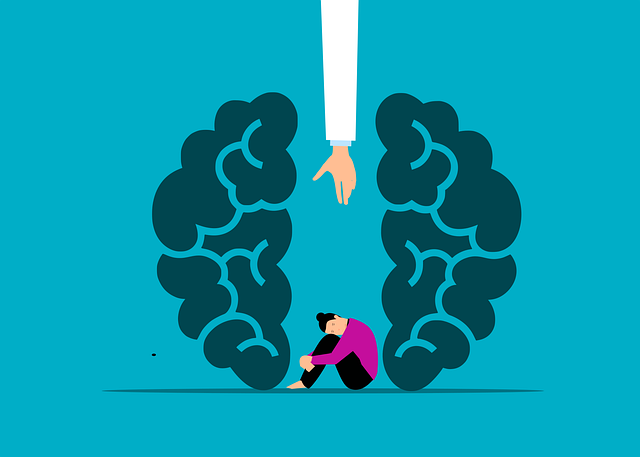Mental health is a critical component of overall well-being, affecting individuals uniquely through thoughts, feelings, and behaviors. Conditions like anxiety, depression, bipolar disorder, and schizophrenia can impact anyone, including those in Denver communities struggling with drug abuse and substance use disorders. Poor mental health has severe consequences, impacting individuals, families, and communities. Denver's Substance Abuse Therapy effectively addresses co-occurring mental health issues through Self-Awareness Exercises, Self-Care Practices, and Social Skills Training. An impactful education program should focus on substance abuse awareness and depression prevention strategies using dynamic outreach programs and a Mental Wellness Podcast Series. The city's successful Substance Abuse Therapy Initiative combines counseling, group therapy, and community outreach, leading to increased participation and improved retention rates, offering a model for other cities tackling Denver drug abuse-substance abuse therapy challenges.
Mental health is a cornerstone of overall well-being, yet it’s often overlooked. This article delves into the crucial topic of mental health education program design, exploring how initiatives like substance abuse therapy in Denver can make a significant impact on individuals and communities. We’ll analyze key components for effective programs, drawing from case studies like Denver’s drug abuse therapy initiatives. Understanding mental health’s far-reaching effects is essential, providing insights to navigate and mitigate challenges.
- Understanding Mental Health and Its Impact on Individuals and Communities
- Components of an Effective Mental Health Education Program
- Implementing and Evaluating a Substance Abuse Therapy Initiative in Denver
Understanding Mental Health and Its Impact on Individuals and Communities

Mental health is a fundamental aspect of overall well-being, encompassing our emotional, psychological, and social state. Understanding mental health involves recognizing that it affects every individual differently, shaping their thoughts, feelings, and behaviors. It is essential to appreciate that mental health issues can range from common yet manageable conditions like anxiety and depression to more severe disorders such as bipolar disorder or schizophrenia. These conditions do not discriminate; they impact people from all walks of life, including Denver communities grappling with drug abuse and substance use disorders.
The impact of poor mental health is far-reaching, affecting not just individuals but also their families and communities. It can lead to decreased productivity, strained relationships, and even physical health issues. For instance, Substance Abuse Therapy in Denver has shown that many clients struggling with addiction also deal with underlying mental health challenges. By integrating Self-Awareness Exercises and Self-Care Practices into therapy, programs can effectively address these co-occurring disorders. Additionally, Social Skills Training has proven to be a valuable component of comprehensive mental health education, fostering healthier interactions and support networks within communities.
Components of an Effective Mental Health Education Program

An effective mental health education program should incorporate several key components to ensure it reaches and supports individuals in need. Firstly, addressing substance abuse issues is crucial, especially in regions like Denver where drug abuse-substance abuse therapy services are vital for community well-being. This can involve educational sessions on recognizing signs of addiction and providing resources for treatment options.
Additionally, depression prevention strategies should be integrated into the program. Community outreach programs can play a significant role by raising awareness about mental health, breaking down stigma, and offering support networks. To engage diverse audiences, incorporating dynamic formats like interactive workshops, Mental Wellness Podcast Series production, or even creative art-based activities can make learning more accessible and appealing.
Implementing and Evaluating a Substance Abuse Therapy Initiative in Denver

In Denver, a Substance Abuse Therapy Initiative has been successfully implemented to combat rising drug abuse rates. The program focuses on providing accessible and tailored therapy services to individuals struggling with substance use disorders. By combining individual counseling, group therapy, and community outreach programs, this initiative aims to address the complex nature of addiction. Community members are actively engaged in the process, fostering a supportive environment that encourages positive thinking and emotional well-being promotion techniques.
The evaluation of this initiative reveals promising outcomes. Increased participation rates in therapy sessions indicate growing trust within the community. Additionally, improved retention numbers suggest that the program is effectively reaching those in need, offering them the tools to overcome addiction. This successful implementation serves as a model for other cities aiming to combat Denver drug abuse-substance abuse therapy challenges, demonstrating the power of community outreach program implementation in promoting holistic mental health solutions.
Mental health education programs play a pivotal role in fostering resilient communities, as exemplified by successful initiatives like substance abuse therapy in Denver. By understanding the profound impact of mental health on individuals and communities, we can design comprehensive programs that equip people with the knowledge and skills to recognize and address challenges. Integrating evidence-based strategies, such as those employed in Denver’s drug abuse therapy, ensures effective interventions tailored to specific needs. Continuous evaluation and adaptation are essential to optimizing these programs, ultimately enhancing the well-being of communities across the nation.













